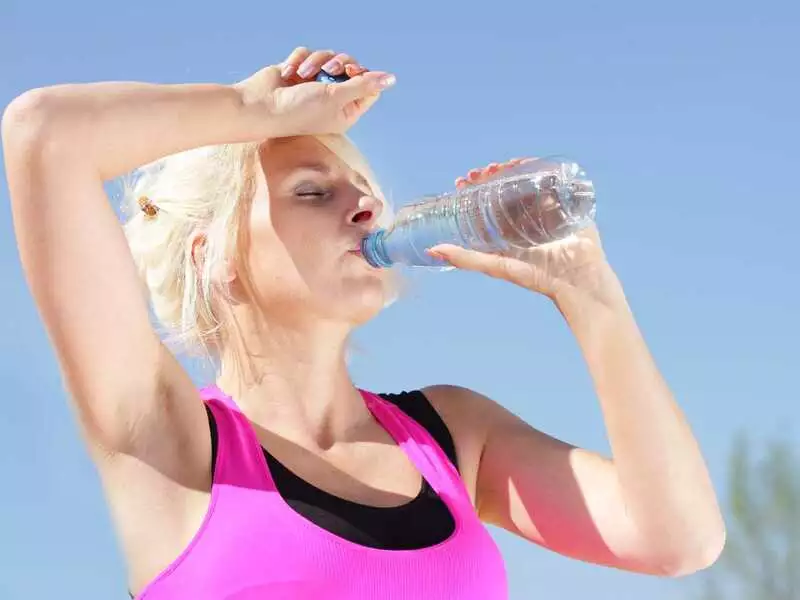The average human being is made up of 60% water, which is essential for the body to function properly - the work of every organ (e.g. muscles, kidneys, lungs, heart), depends on the presence of water. Every day, the human body loses 2.5 - 3 litres of water as a result of the processes that take place within it (the work of individual body parts). This means that every 6 weeks, the water in the body - is regularly replaced.
A healthy body maintains an extremely detailed control of its fluid balance (even a one per cent loss of water can have a negative effect on the functioning of the entire organism).
Water is life
Thanks to the water present in the body - it works properly. Water is a solvent and a carrier of nutrients, regulates arterial pressure, removes harmful products of metabolism and regulates body temperature.
Every organ contains water:
- brain (80%),
- blood (85%),
- muscles (70%),
- kidneys (78%)
- lungs (80%),
- body cells (90%).
Water deficiency manifests itself much more quickly than food deficiency. The brain, as a result of inadequate water supply, has a poorer blood supply, reduces the ability to concentrate and develops memory problems.
Dehydrated people also suffer from symptoms such as:
- persistent headaches,
- problems with digestion,
- heart problems.
Important! The body's water requirement depends on many factors (e.g. ambient temperature, body weight, age). The minimum requirement for water is 1 litre per day.
However, a minimum of 2 litres of water (preferably mineral water) should be consumed daily in order for the body's internal processes to function properly, because of the minerals present.
Mineral water - characteristics
Mineral water should be part of the daily diet. However, before we consume it, it is worthwhile to familiarise ourselves with its different mineralisation levels and to choose the best one for our body.
Spring waters (low mineralised) are characterised by no more than 500 mg of minerals per litre. Waters of this type are drawn from underground deposits (they are originally pure, free of impurities, the chemical composition may be subject to slight variations). This type of water is good as a substitute for tap water in food preparation (e.g. for cooking).
Important! Although spring water is an excellent thirst quencher, in hot weather it is advisable to drink it alternatively with medium and high mineralised waters (minerals are washed out of the body).
Mineral waters (medium mineralised) - contain 500 - 1500 mg of minerals per litre. The main advantage of this type of water is that it does not flush out from the body elements necessary for life.
Important! They do not disturb the electrolyte balance of the body (they can be drunk in any quantity). They hydrate the body and also replenish it with valuable mineral elements so important for health and beauty.
Mineral waters (highly mineralised) - contain more than 1,500 mg of minerals per litre. They make it possible to replenish mineral deficiencies in the body (depending on their composition, they have a prophylactic and health-supporting effect on the treatment of various diseases).

photo: shutterstock
Important! This type of water is recommended for hard-working, active people and athletes. They are a valuable source and a large dose of minerals.
Table waters - are created by adding natural mineral water or mineral salts containing one or more minerals (e.g. sodium, magnesium, potassium) to spring water.
Important! The added ingredients give the table water its prophylactic and health-promoting character.









